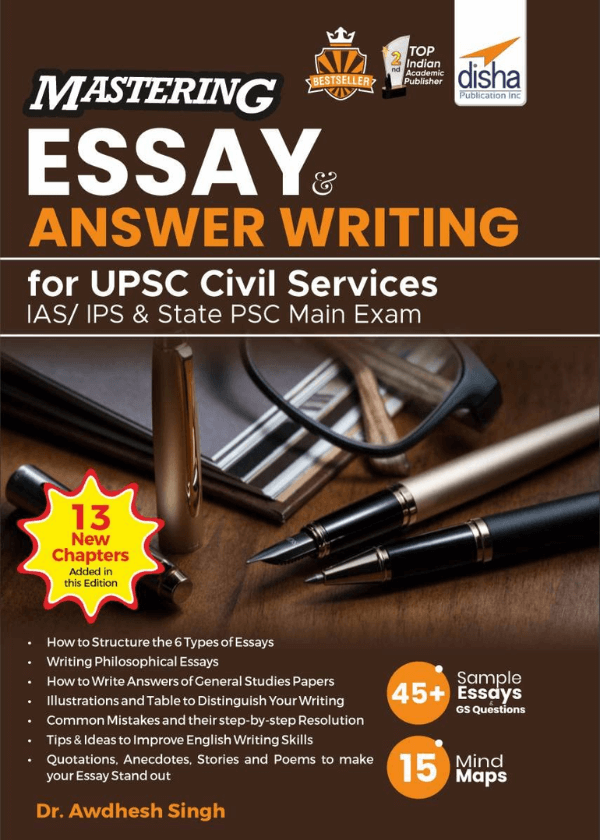Mastering Essay & Answer Writing for UPSC Civil Services
By Awdhesh Singh
For IAS/ IPS & State PSC Main Exams | 2nd Edition | Prelims & Mains | CSE | State Administrative Exams Paperback – 1 January 2022
The second Edition of the Bestselling Book Mastering Essay & Answer Writing for UPSC Civil Services IAS/ IPS & State PSC Main Exam, authored by Dr. Awdhesh Singh, has been thoroughly updated and enlarged. The book contains the decades of experience of Civil Services with the expertise of the author. It prepares you to write best ANSWERS and ESSAYS in the IAS/ PCS Mains examination.
This new Edition now contains 27 Chapters with the addition of 13 New Chapters. This edition also provides Mains Preparation Strategy & Resources.
Reviews From Amazon
Top Notch Book to Enhance Your Essay Writing Skill
Excellent Book by Awdhesh Sir i bought both his Essay and Ethics Book both are wonderful just like his answers on Quora simple yet elegant. Holistic Coverage of Dimensions needed in an Essay and Answer Writing.
The Gem for Essay Writing
Superb book. From reading the first few pages, I am confident I can improve a lot in my weakest area – essay writing. Thank you
The book is really worth buying for UPSC descriptive writing
The book is really worth buying especially for the beginners who want to master the art of descriptive writing. It provides with wise tips and effective guidance particularly for UPSC descriptive writing and in general for all types.
Guide for essay writing
It will present a picture of essay writing in ur mind that would make the essay a cup of tea…
The best from Awdhesh sir
The book is well designed and has easy steps which obviously will need a lot of practice. Awdhesh sir has put in it what he does the best and that reflects. If you need a guide while assessing your own essays, a book like this could help you understand the need parameters.


